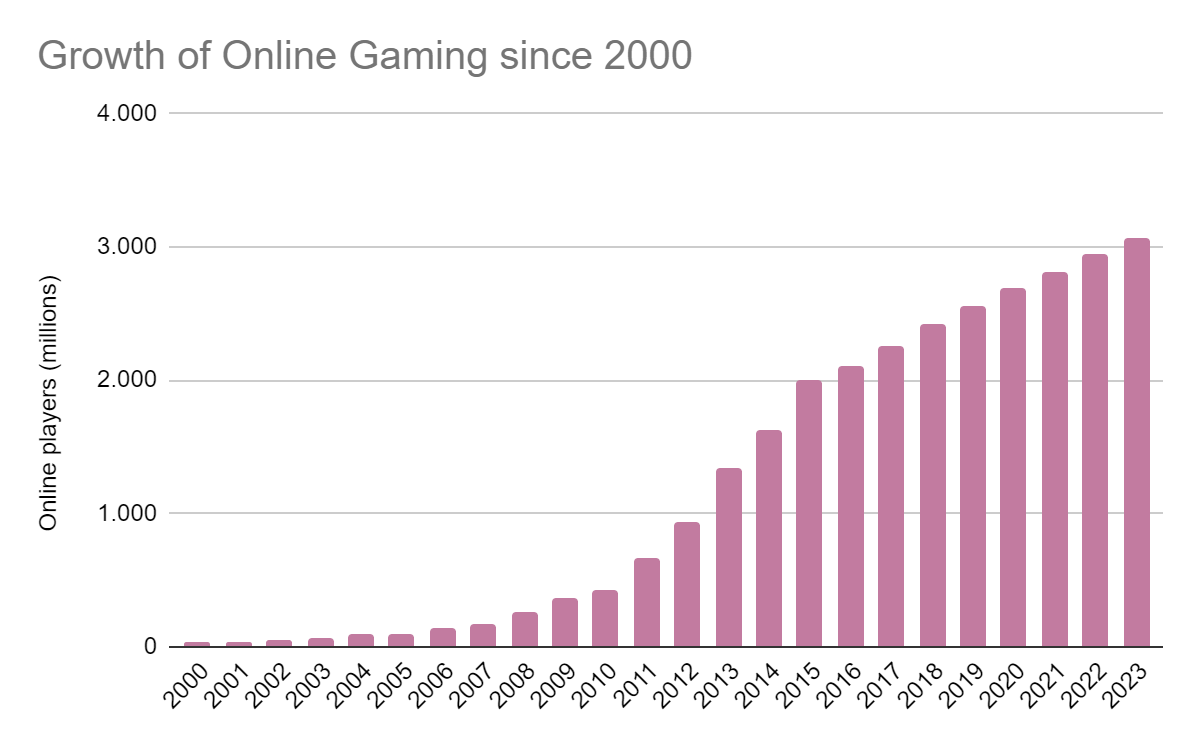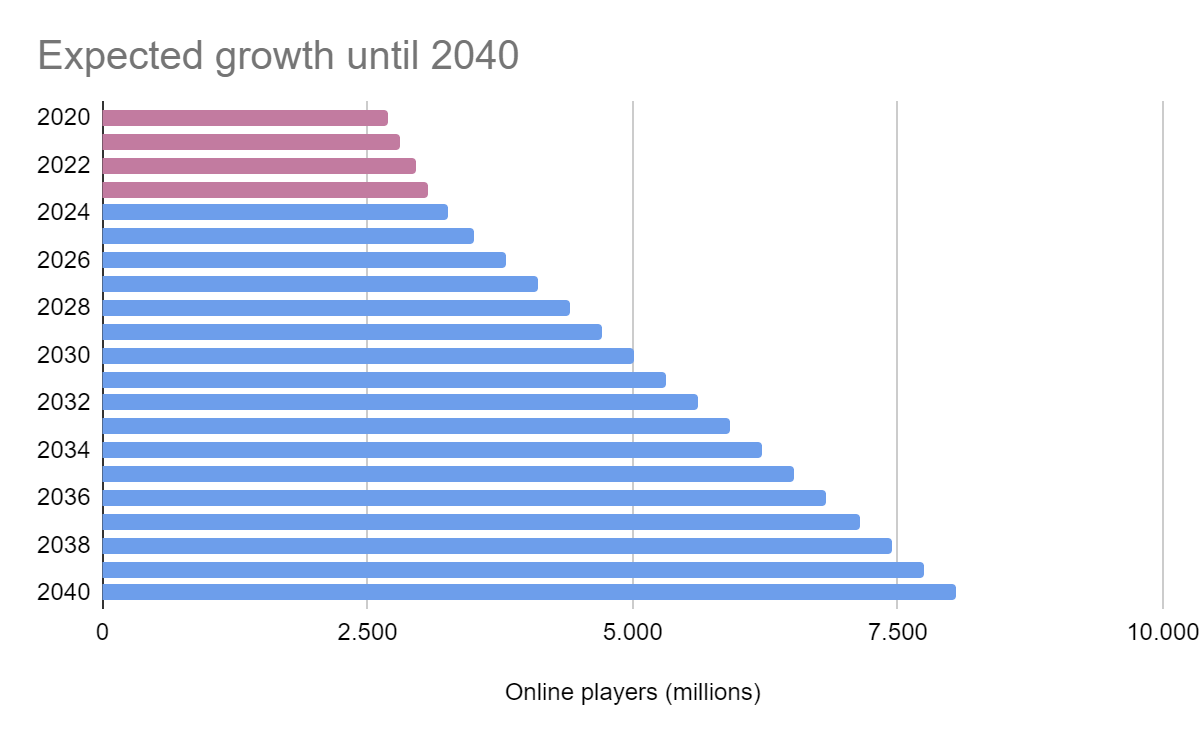Who will win the battle Online VS Offline gaming?
We often talk about how technology influences all areas of everyday life. Thanks to the online presence of most companies, services have become faster and more accessible, and the customer experience has become better.
Since the appearance of Internet gaming has slowly switched from a full offline focus, in which players used to play against a very predictable AI, to games which offer both options, or even a unique online multiplayer experience. Despite some game fans rejecting playing online, the number of Online Gamers has grown from barely 35 million people in 2020, to more than 3000 in 2023.
 Same happens with the gambling industry, where since the new millennium online betting, and gambling games, have experienced an exponential growth. However, there is still a generation that enjoys betting live at the races, or playing with a live casino dealer.
Same happens with the gambling industry, where since the new millennium online betting, and gambling games, have experienced an exponential growth. However, there is still a generation that enjoys betting live at the races, or playing with a live casino dealer.
The comparison website Online Casino Groups has made a study of the battle between online and offline gaming & gambling, which will experience in the next 15 years, and the projection reveals that in 2040 there will be more than 8 Billion online players.
 The text compares online and offline gambling in terms of their current and future trends, advantages, and disadvantages. It shows that online gambling is growing faster than offline gambling, but both types of gambling have their own strengths and weaknesses.
The text compares online and offline gambling in terms of their current and future trends, advantages, and disadvantages. It shows that online gambling is growing faster than offline gambling, but both types of gambling have their own strengths and weaknesses.
Advantages & Disadvantages of Online Gaming VS Offline Gaming
The main difference between both options is that while online gaming refers to playing games that require an internet connection, offline gaming refers to playing games that do not need the internet. These are the main points:
- Online gaming has the advantages of multiplayer access, wide array of games, and rewards. However, it also has the disadvantages of system requirements, eyesight problems, poor internet connection, and credit card theft.
- Offline gaming has the advantages of better security, and less time pressure. However, it also has the disadvantages of being less challenging.
Both online and offline gaming have their own strengths and weaknesses, and players can choose the type of gaming that suits their preferences, needs, and goals.
Pros and Cons of online and offline Gambling
Online gambling offers a wider selection of games, higher accessibility, lower costs, and more innovation. However, it also faces security risks, technical issues, and legal challenges. Online gambling is expected to benefit from technologies such as virtual and augmented reality, artificial intelligence, machine learning, and cryptocurrencies in the future.
Offline gambling offers more reliability, trust, reputation, social environment, and physical presence. However, it also has higher operating costs, limited availability, and reduced potential income. Offline gambling is expected to adapt to the competition from online gambling by improving its security, entertainment, and luxury offerings, and by catering to the social needs of the public.
Upcoming changes in the next years
The text concludes that both online and offline gambling will coexist and complement each other in the future, depending on various factors.
Online innovations expected:
- Technological progress will lead to expanded capabilities of virtual and augmented reality. Users will be able to immerse themselves in a gaming environment without leaving home.
- The number of available online platforms will continue to grow. And as countries around the world relax their laws regarding online gambling, they will have a better chance of developing and expanding the range of services.
- Artificial intelligence and machine learning are other technologies that will have a significant impact on iGaming. AI will play a larger role not only in providing a personalized experience but also in detecting and preventing cheating or problematic gambling behavior.
- Cryptocurrencies have the potential to become the main means of online payments, making transactions anonymous, secure, and fast.
Offline experience improvements:
- Technological innovations such as enhanced security systems, state-of-the-art entertainment offerings, and luxury accommodations will play an even more important role in land-based casinos, enhancing the overall experience.
- Social aspects will come first in the future. In a digital world, physical presence will become more important than ever. Land-based casinos will offer entertainment events, in-person prize draws, shows, and meet-and-greets to meet the public’s need for social interaction.
- The fact that most countries will relax their gaming regulations will allow operators to build more physical gambling places to boost tourism.
You can read the whole research on this link
